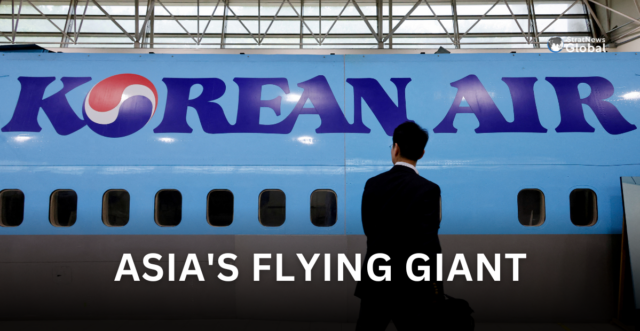Korean Air said on Thursday it had completed its protracted purchase of South Korean rival Asiana Airlines, making it one of Asia’s biggest carriers.
Purchase Of Debt-Laden Asiana
The 1.8 trillion won ($1.3 billion) deal, the longest-ever merger to complete between airlines, was first announced four years ago by South Korea’s largest carrier to rescue debt-laden Asiana, which was grappling with a plunge in demand during the COVID-19 pandemic.
The acquisition of South Korea’s No. 2 carrier was hampered by competition concerns and Korean Air had to make significant concessions to competition watchdogs around the world, including handing routes to other airlines and selling Asiana’s cargo operations.
Korean Air acquired a 63.88% stake in Asiana on Thursday, making it a subsidiary three years later than the smaller airline had initially anticipated.
The enlarged Korean Air group could account for just over half of South Korea’s passenger capacity, and would become the world’s 12th-largest airline by international capacity, a Reuters analysis of airline data from Cirium and OAG shows
It would rank alongside China’s top three state-owned carriers as one of the Asia-Pacific region’s largest by revenue, according to 2023 financial results.
Asiana Will Be A Subsidiary Before Integration
“The combined organisation projects natural staff growth through business expansion, with employees in overlapping functions being reassigned within the organisation,” it said in a statement.
Asiana will be run as a subsidiary for up to two years before integrating into one airline that will keep the Korean Air name, but with new branding.
Korean Air will also create a single low-cost carrier and its integration strategy includes spreading out flight schedules on overlapping routes, adding new destinations and further investments in safety, it said.
A plan to merge the two airlines’ frequent flyer programmes will be submitted to the Korea Fair Trade Commission by June 2025 for review, Korean Air added.
The airline said the merger aims to boost the capabilities and network reach of South Korea’s Incheon International Airport, the world’s fourth-busiest for international flights and fifth-busiest for cargo, which competes with Asian hubs Hong Kong and Singapore.
Airline consolidation is rarer in Asia than in Europe, which has seen a wave of mergers in the last two decades, and in North America where regulators fear the industry is too concentrated.
Korean Air said the deal would strengthen its competitive position globally.
Asiana will hold an extraordinary general meeting of shareholders on Jan. 16 to appoint new board directors nominated by Korean Air.
(With inputs from Reuters)





